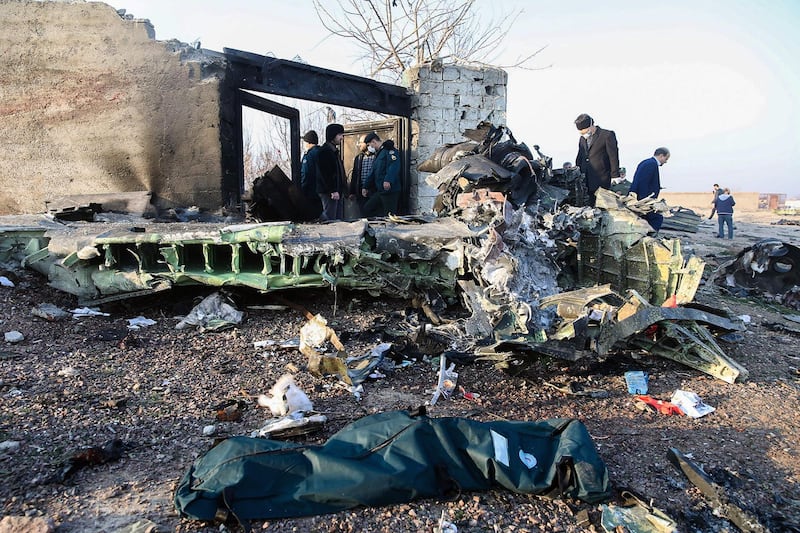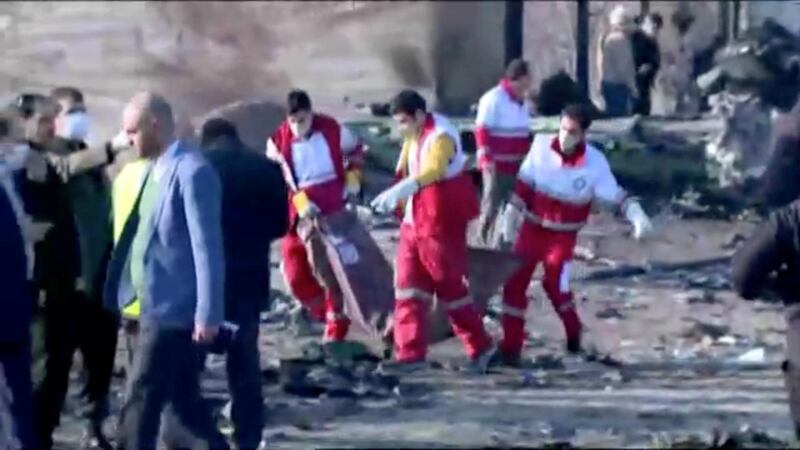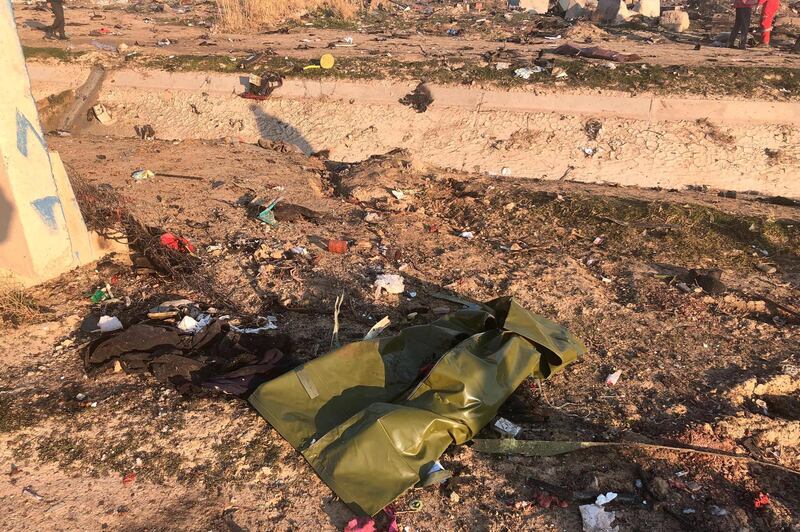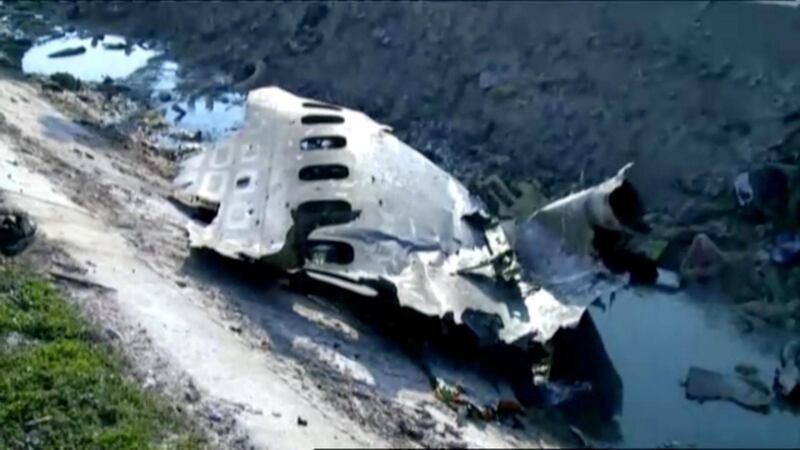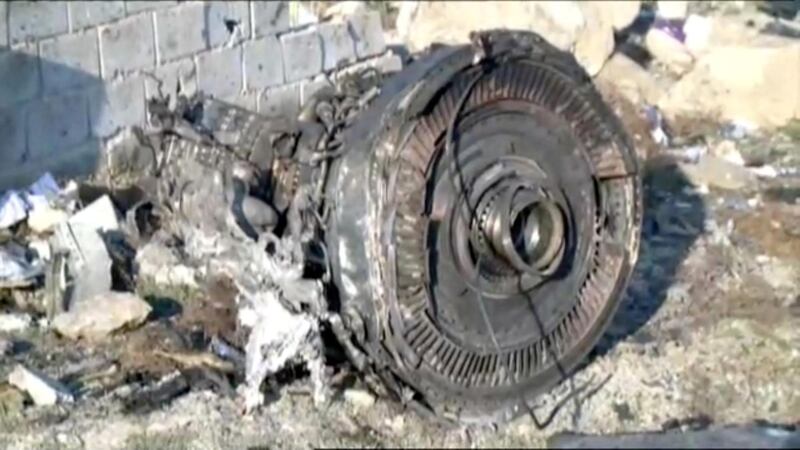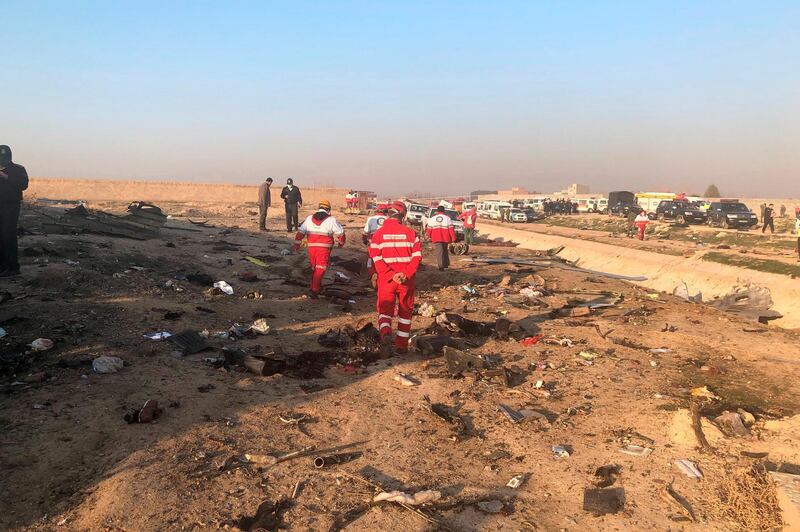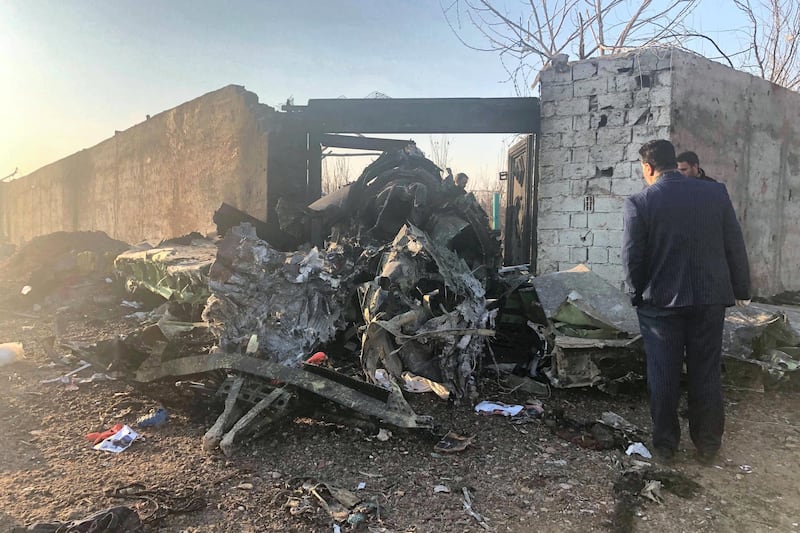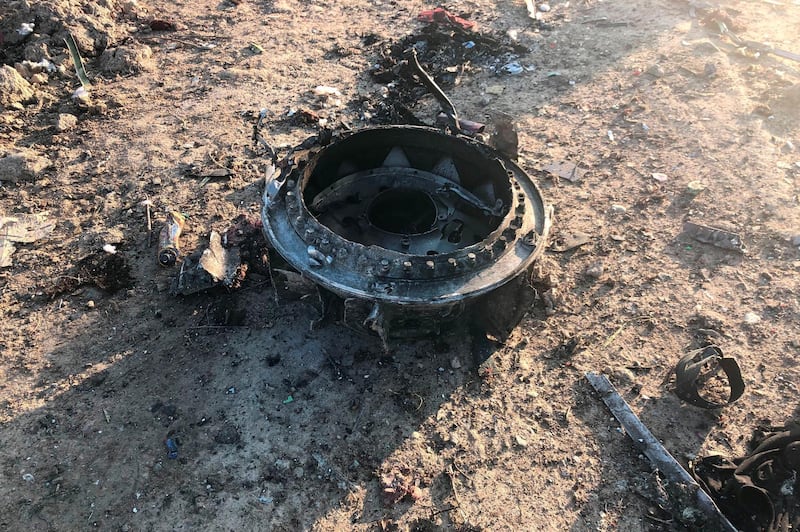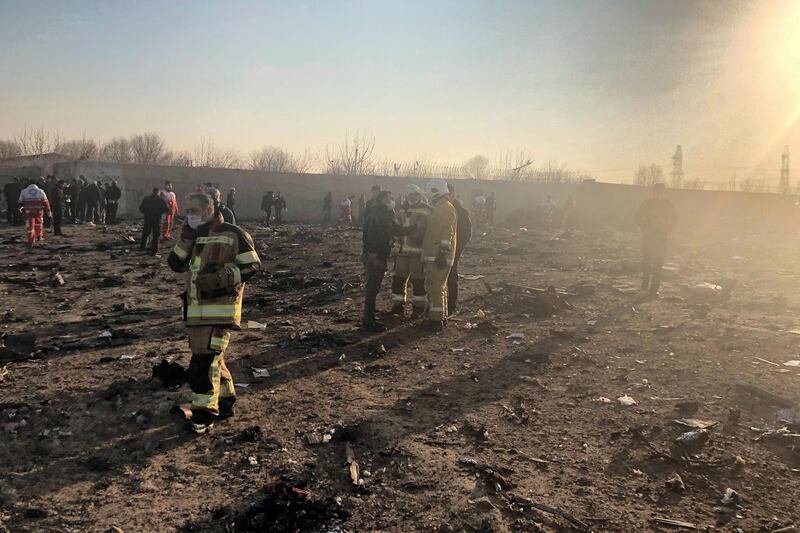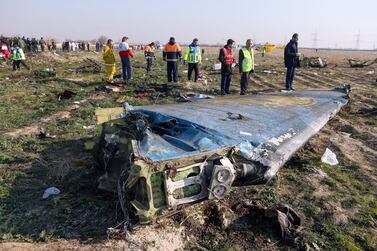Canada is pressing Iran to send black boxes from a Ukrainian airliner shot down by the Islamic Revolutionary Guards Corps near Tehran last month to France for evaluation.
Iran has so far refused to release the black boxes even after admitting its military shot down the civilian plane near Tehran on January 8, killing all 176 on board.
Tehran initially asked for the equipment needed to analyse the data on the flight data recorders but later said it had obtained a list and would procure the items itself.
Known commonly as black boxes, the crash-proof equipment records all the aircraft movement and data as well as audio from the cockpit.
Only a few labs around the world are able to decode the information stored and it is common for the black boxes to be sent away for analysis after a crash.
Canadian Foreign Minister Francois-Philippe Champagne spoke to his Iranian counterpart Javad Zarif on Wednesday and stressed that Tehran must arrange for the quick download and analysis of recorders from Ukraine Airlines Flight 752.
Mr Champagne said the preferred option was "for Iran to make use of the facilities offered by France with the technical capacity to do this work".
Prime Minister Justin Trudeau last month said the black boxes were damaged and France was one of the few nations able to decipher the data.
Mr Champagne also told reporters that he and Transport Minister Marc Garneau met the head of the International Civil Aviation Organization last Friday to ask for its help to make sure the flight and cockpit recorders were sent to France.
Of those killed on the flight, 57 had Canadian nationality. However, Tehran does not recognise dual nationality and has previously said it does not consider many of those on the flight to be Canadian, potentially raising issues over the repatriation of remains and compensation for families.
Mr Champagne also raised the question of compensation for families the 57 Canadian victims.
Iran's civil aviation authority said on Tuesday that it would keep working with other countries investigating the incident after it ended co-operation with Ukraine.
It came after leaked audio gave further evidence that Iranian officials knew immediately that it had shot down the aircraft.
Initially, the Iranian government denied the reports showing missiles hitting the aircraft on January 8 but admitted three days later saying that the IRGC had only made the government aware of their confidential report days after the incident.
But Ukrainian TV last Sunday broadcast the audio of an exchange between air traffic controllers and a pilot of another aircraft landing in Tehran as Flight 752 was shot down.
The pilot describes "a series of lights on our route, like a missile" and an "explosion", and asks for an explanation from the controller.
Pilot reports downed plane in leaked audio
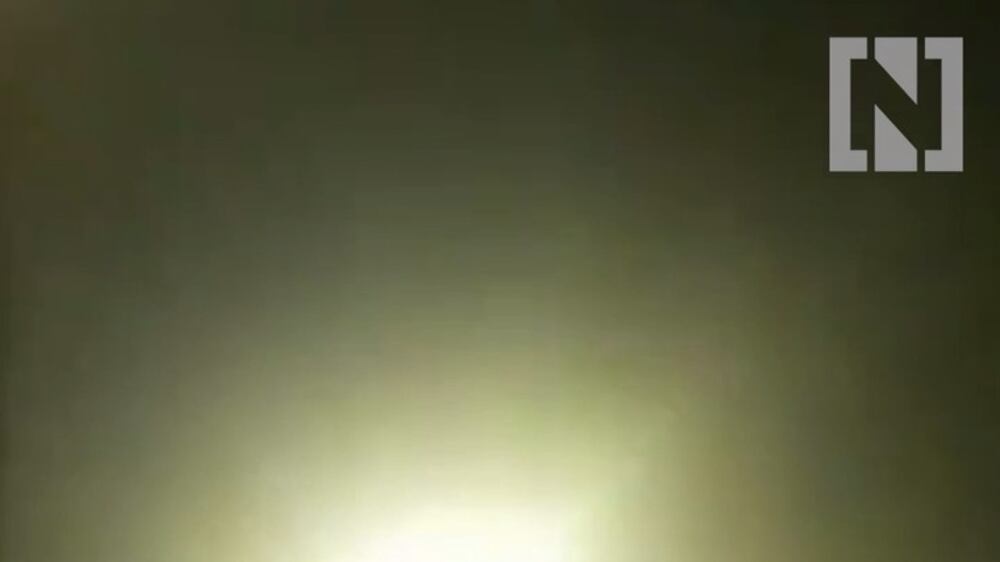
Ukraine's president Volodymyr Zelenskiy said the audio proves Iranian officials knew the flight had been brought down by a missile long before the admission.
The incident came amid heightened regional tensions after the United States killed IRGC Quds force commander Qassem Suleimani and Iraqi head of Iran's proxies, Abu Mahdi Al Muhandis, in a drone strike near Baghdad on January 3.
Iranian air defences were on high alert on January 8 as Iran launched a retaliatory rocket strike on US positions on Iraqi military bases.
Iran said there was confusion over the civilian aircraft taking off from Tehran's main airport and a missile operator mistook it for a US cruise missile and he opened fire after communication equipment failure prevented him checking with superiors.
Although the Iranian retaliation caused no fatalities, the US has since said that as many as 50 soldiers stationed at Al Asad military base in Iraq were subsequently treated for "traumatic brain injuries" as a result of the rocket strike.
The Pentagon has said that 60 per cent of those treated have since returned to service.
